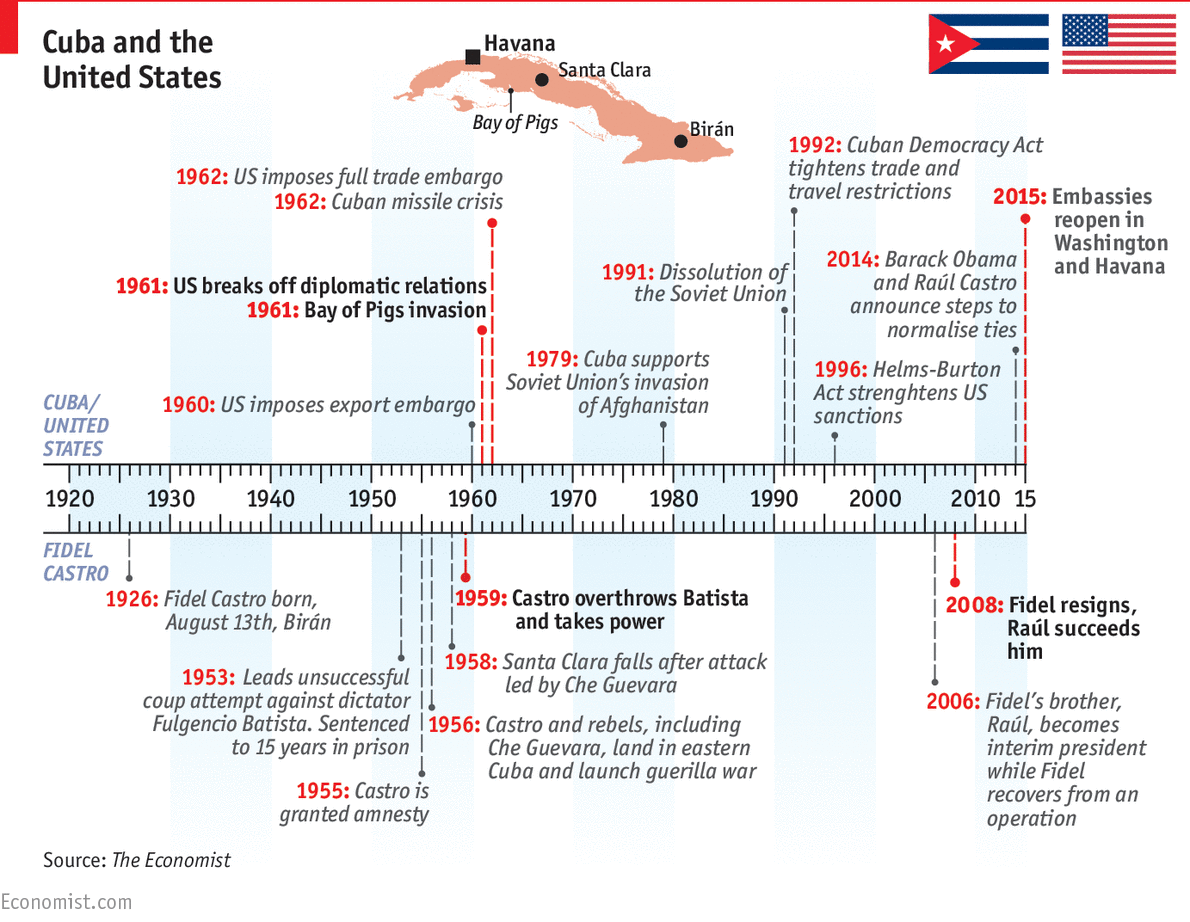
THE United States and Cuba resumed diplomatic relations on July 20th after an interruption of 54 years. The re-opening of embassies is the latest in a series of friendly steps that began when Barack Obama, America’s president, and Raúl Castro, Cuba’s leader, announced last December that the two countries would move towards normalising relations. Cuba freed 53 political prisoners in January. The United States loosened its trade embargo and made it easier for citizens to travel to the island. In May it dropped Cuba from its list of state sponsors of terrorism, which paved the way for Cuba to open American bank accounts.
Full normalisation, though, is still a long way off. Only Congress can repeal the trade embargo, which bars most exports, imports and investment across the Florida Strait. Although opposition to better relations has lessened among Cuban émigrés and their descendants, conservatives insist they reward a repressive regime. The Republican Party, which controls both houses of Congress, can keep the embargo on the statute books for the foreseeable future. Marco Rubio, a senator from Florida who is campaigning to be the party’s presidential nominee, says he will try to block confirmation of an American ambassador. The United States’ new embassy in Havana may have no envoy to lead it.






























